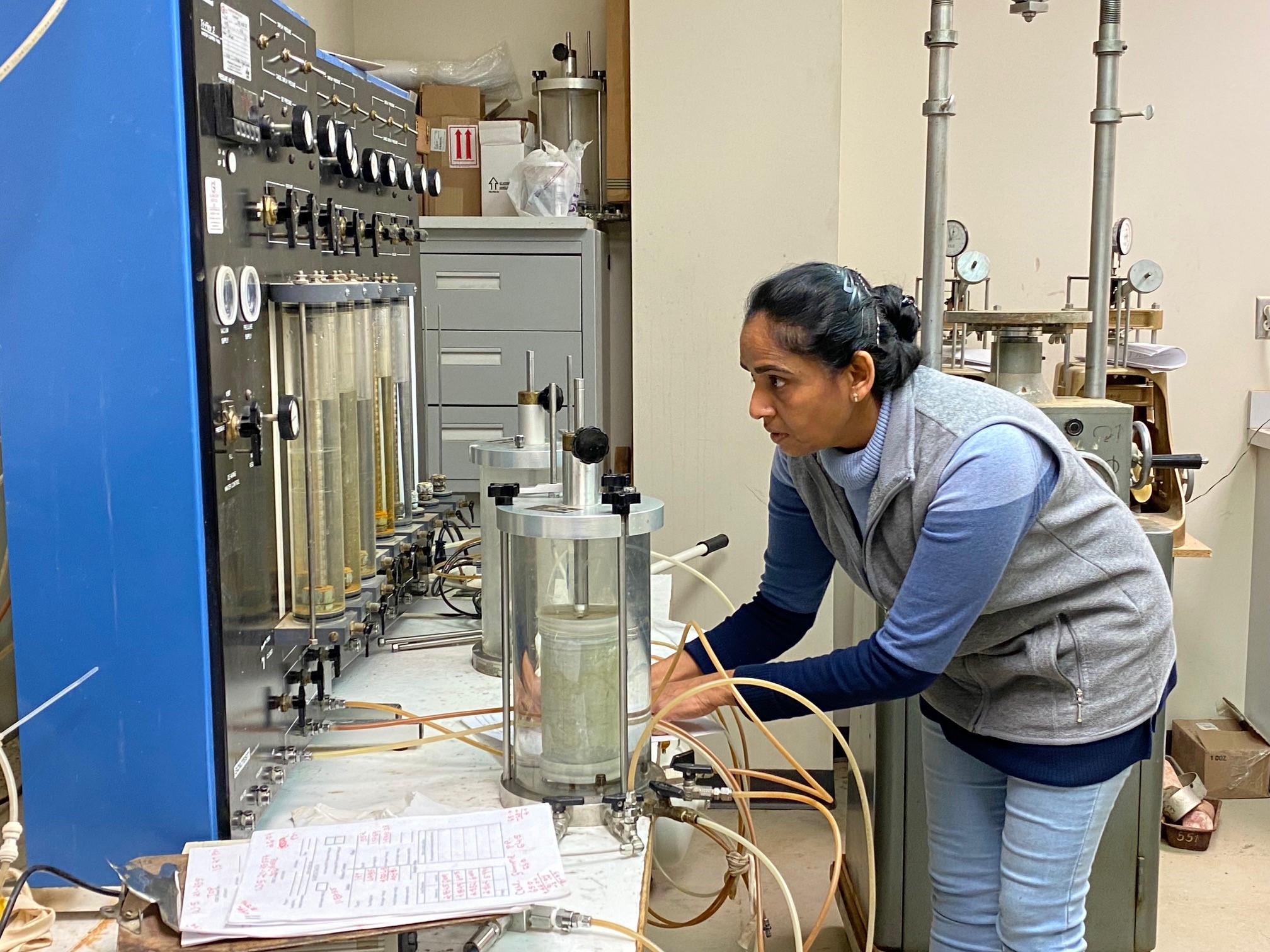Materials Test Lab Mastery: Elevate Your Item Honesty
Wiki Article
Advanced Products Screening Solutions for Reliable Results
In the world of products testing, accuracy and precision are of utmost importance. With the ever-increasing intricacy of sophisticated products, it is critical to rely on trusted and robust testing solutions.Non-destructive testing methods allow for thorough evaluation of products without endangering their integrity. Advanced analytical tools provide beneficial understandings into the properties and actions of materials at a tiny degree. High-temperature screening options make it possible for the analysis of products' performance under severe problems.
Furthermore, progressed mechanical screening approaches offer a much deeper understanding of the mechanical residential properties of materials. Customized testing options resolve certain requirements and difficulties of various markets.
By utilizing these sophisticated products examining remedies, industries can with confidence make notified decisions based on trustworthy and trustworthy outcomes.
Non-Destructive Checking Techniques
Non-destructive screening methods play a crucial role in making certain the reliability of advanced materials by permitting precise evaluation without creating damage. These techniques are necessary in industries that rely upon the efficiency of products such as aerospace, automobile, and building and construction.One of the most common non-destructive testing strategies is Visual Inspection, which entails evaluating the surface of a product for defects, such as fractures, corrosion, or delamination. This method is cost-effective and simple, making it a preferred selection in several sectors.
One more extensively utilized technique is Ultrasonic Testing (UT), which utilizes high-frequency acoustic waves to identify internal defects or disparities in products. By assessing the representation of audio waves, UT can provide beneficial info about the density, honesty, and density of a product. This technique is particularly efficient for identifying covert fractures or gaps in steels, compounds, and other materials.
Magnetic Fragment Evaluating (MT) is another non-destructive technique that is generally used to spot surface area and near-surface defects in ferromagnetic products. By using magnetic fields and magnetic bits to the material, MT can identify fractures, seams, and other flaws that could jeopardize its structural stability.
Advanced Analytical Instruments
Using advanced innovation, advanced logical tools give precise evaluation of products for trustworthy results. These instruments play an essential role in materials testing, making it possible for engineers and researchers to gain a much deeper understanding of the make-up, framework, and buildings of numerous materials.
One more important tool is the X-ray diffractometer (XRD) XRD allows scientists to evaluate the crystal structure of products by measuring the diffraction pattern of X-rays that communicate with the example. This technique provides information concerning the arrangement of atoms within the product, aiding to identify stages, crystallographic issues, and grain positionings.
Furthermore, advanced analytical tools additionally consist of Fourier-transform infrared spectroscopy (FTIR), which evaluates the communication in between infrared radiation and a material to identify its chemical make-up and useful groups. Additionally, techniques such as atomic force microscopy (AFM) and energy-dispersive X-ray spectroscopy (EDS) are utilized to examine surface topography and important make-up, respectively.
High-Temperature Testing Solutions
To attend to his response the difficulties of products testing at heats, specialized remedies have been established to make sure precise and dependable results. High-temperature testing is essential in numerous sectors, such as aerospace, vehicle, and energy, where materials should endure extreme conditions. These services include the usage of advanced equipment and strategies that can take care of and simulate extreme temperatures.
One more important aspect of high-temperature screening solutions is the advancement of sophisticated dimension and analysis methods. These strategies allow scientists to properly monitor and track the behavior of products under severe temperatures. Non-contact dimension approaches, such as thermal imaging and spectroscopy, are frequently made use of Extra resources to examine thermal conductivity, growth, and various other crucial product residential or commercial properties.
Furthermore, high-temperature testing remedies usually include making use of innovative materials, such as refractory metals and porcelains, that can endure severe warm without endangering their architectural integrity. These materials are used in the building of components, sensors, and various other elements necessary for exact testing.
Advanced Mechanical Evaluating Techniques

One typically utilized mechanical screening approach is tensile screening, which uses a controlled force to a product sample to gauge its ability to hold up against tension. This examination helps determine essential mechanical buildings such as flexibility, ductility, and strength.
One more sophisticated mechanical screening approach is hardness screening, which measures a product's resistance to impression or infiltration. This test is critical for evaluating a product's capacity to withstand contortion, crack, and wear.
Moreover, tiredness testing is utilized to evaluate a material's resistance to recurring loading, imitating real-life problems where components experience cyclic stress and anxieties. This examination is especially important for sectors such as aerospace and auto, where the reliability and resilience of materials are important.
Along with these techniques, advanced mechanical screening includes effect testing, creep screening, and crack sturdiness testing, to name a few. These approaches provide beneficial insights anonymous into a material's actions under different mechanical problems and aid guarantee the reliability and safety and security of different applications.
Customized Checking Solutions
Custom-made testing solutions are customized to satisfy certain demands and provide precise and dependable results in products testing (materials test lab). Each product has unique homes and characteristics that need customized testing approaches.One of the primary benefits of personalized screening solutions is their versatility. They can be designed to suit a wide variety of materials, including steels, composites, polymers, and porcelains. By understanding the special residential properties of each product, screening parameters can be enhanced to make sure trusted and exact outcomes.
Another benefit of customized screening solutions is their capacity to address specific testing demands. Whether it is testing the mechanical buildings, exhaustion behavior, or thermal security of a product, a customized strategy can be created to meet these needs. This ensures that the screening procedure is reliable and reliable, saving time and sources.
Personalized testing remedies also offer the benefit of flexibility. As brand-new materials and testing demands emerge, these solutions can be changed and upgraded to accommodate the modifications. This guarantees that the testing procedure stays updated and relevant in an ever-evolving industry.
Verdict
To conclude, advanced materials checking options use trustworthy outcomes with non-destructive screening methods, advanced analytical tools, high-temperature screening options, advanced mechanical screening approaches, and tailored testing options. These instruments and strategies play an important duty in ensuring the top quality and performance of materials in various markets. Utilizing these sophisticated testing approaches can improve the understanding, characterization, and optimization of products, resulting in enhanced item growth and overall performance.With the ever-increasing intricacy of innovative products, it is critical to rely on reliable and durable screening services (materials test lab). High-temperature testing options enable the analysis of materials' performance under extreme conditions
Personalized screening remedies are tailored to meet certain demands and supply precise and reputable outcomes in materials screening.One more advantage of personalized screening options is their ability to attend to particular testing requirements.In conclusion, progressed products testing solutions use reputable results through non-destructive screening techniques, progressed logical instruments, high-temperature testing options, advanced mechanical testing methods, and customized testing options.
Report this wiki page